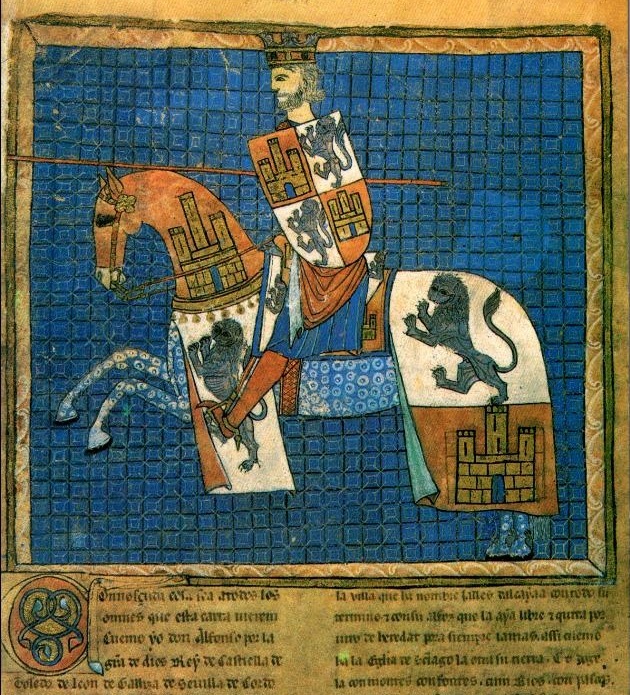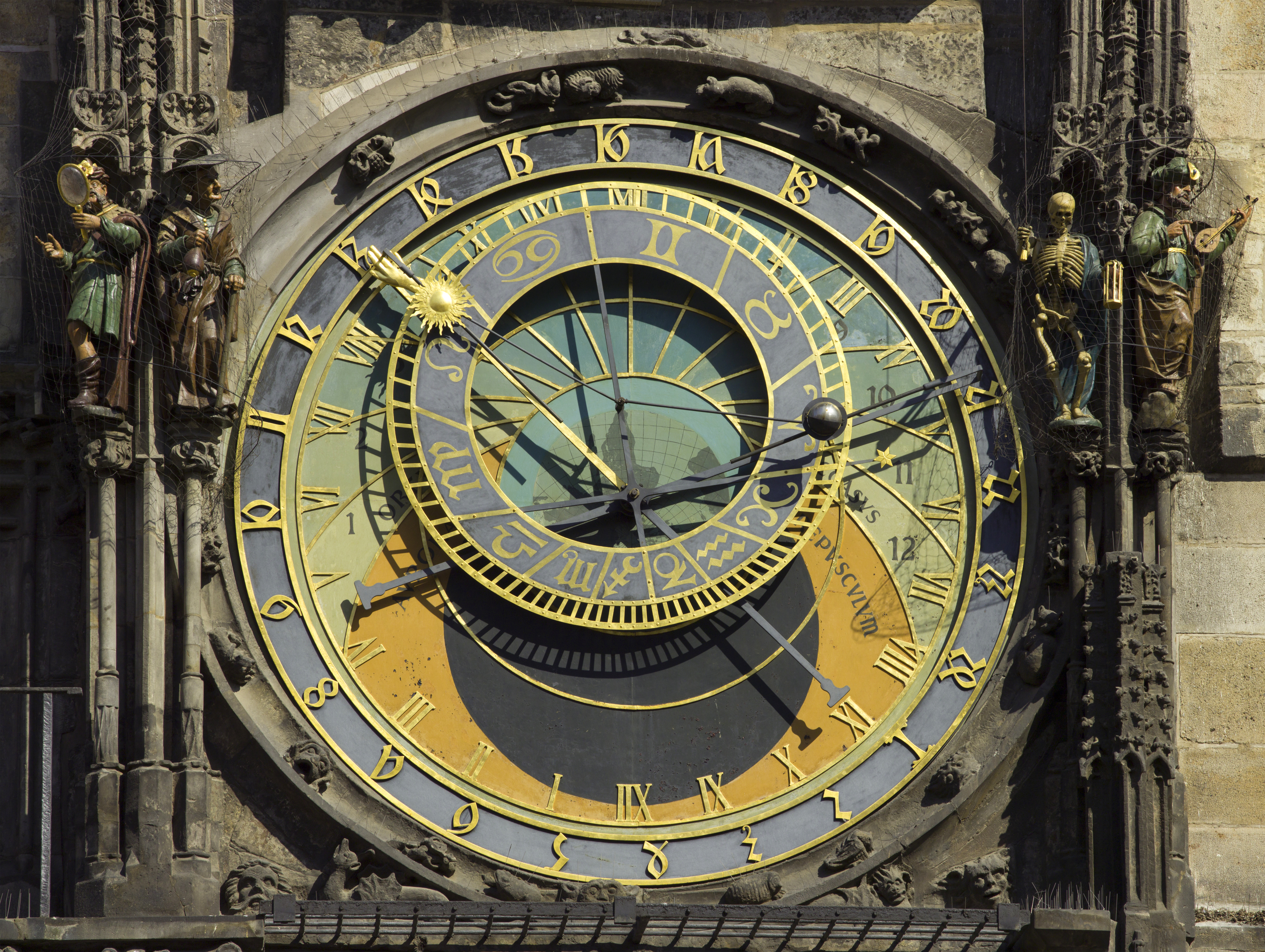|
Astronomical Clock, St. Nicholas Church, Stralsund
The astronomical clock of St. Nicholas Church, Stralsund is a 14th century monumental astrolabe clock. It was probably damaged in the 16th century, and has not worked since then. It is the only clock of its kind to have been preserved almost entirely in its original condition. The clockwork and the indications have not been restored.Manfred Schukowski: ''Wunderuhren'', Thomas Helms Verlag, Schwerin 2006, ISBN 3-935749-03-1, p. 111: The clock is ''„einmalig“'' nique in that ''„in ihrer äußeren gotischen Gestalt unverfälscht und nahezu vollständig erhalten blieb“'' t remains unadulterated and retains its exterior gothic form almost in fulland ''„ihr Uhrwerk'' ..''ohne jeden Zusatz aus späterer Zeit vorhanden“'' he clockwork is without any addition from a later time The Stralsund clock is the oldest mechanical clock in the world to have been preserved in its original state, and one of the oldest fittings in St. Nicholas, first mentioned in 1394. It is positioned ... [...More Info...] [...Related Items...] OR: [Wikipedia] [Google] [Baidu] |
Ptolemy
Claudius Ptolemy (; grc-gre, Πτολεμαῖος, ; la, Claudius Ptolemaeus; AD) was a mathematician, astronomer, astrologer, geographer, and music theorist, who wrote about a dozen scientific treatises, three of which were of importance to later Byzantine, Islamic, and Western European science. The first is the astronomical treatise now known as the ''Almagest'', although it was originally entitled the ''Mathēmatikē Syntaxis'' or ''Mathematical Treatise'', and later known as ''The Greatest Treatise''. The second is the ''Geography'', which is a thorough discussion on maps and the geographic knowledge of the Greco-Roman world. The third is the astrological treatise in which he attempted to adapt horoscopic astrology to the Aristotelian natural philosophy of his day. This is sometimes known as the ''Apotelesmatika'' (lit. "On the Effects") but more commonly known as the '' Tetrábiblos'', from the Koine Greek meaning "Four Books", or by its Latin equivalent ''Qua ... [...More Info...] [...Related Items...] OR: [Wikipedia] [Google] [Baidu] |
Deutsche Gesellschaft Für Chronometrie
Deutsche Gesellschaft für Chronometrie (DGC), (German Society for Timekeeping) today is an organization of scholars, collectors and enthusiasts in Germany interested in the science, art and history of horology. History The association was founded in the post World War II years (as an unofficial successor to the ') and originally consisted mainly of scientists and engineers from the watch and clock producing industry. Over the years more people joined who were interested in the history of timekeeping devices, and eventually two separate divisions were set up, a ' (Scientific Division) and a ' (Historical Division). When the clock and watch industry withered in the fourth quarter of the 20th century the technical division withered, and by 2000 the divisional structure was dropped. Today the bulk of the membership unites collectors, scholars and museum professionals interested in the historical aspects of clocks, sundials and watches. Structure Today the association is national in s ... [...More Info...] [...Related Items...] OR: [Wikipedia] [Google] [Baidu] |
Hanseatic League
The Hanseatic League (; gml, Hanse, , ; german: label= Modern German, Deutsche Hanse) was a medieval commercial and defensive confederation of merchant guilds and market towns in Central and Northern Europe. Growing from a few North German towns in the late 12th century, the League ultimately encompassed nearly 200 settlements across seven modern-day countries; at its height between the 13th and 15th centuries, it stretched from the Netherlands in the west to Russia in the east, and from Estonia in the north to Kraków, Poland in the south. The League originated from various loose associations of German traders and towns formed to advance mutual commercial interests, such as protection against piracy and banditry. These arrangements gradually coalesced into the Hanseatic League, whose traders enjoyed duty-free treatment, protection, and diplomatic privileges in affiliated communities and their trade routes. Hanseatic Cities gradually developed a common legal system gov ... [...More Info...] [...Related Items...] OR: [Wikipedia] [Google] [Baidu] |
Abu Ma'shar Al-Balkhi
Abu Ma'shar al-Balkhi, Latinized as Albumasar (also ''Albusar'', ''Albuxar''; full name ''Abū Maʿshar Jaʿfar ibn Muḥammad ibn ʿUmar al-Balkhī'' ; , AH 171–272), was an early Persian Muslim astrologer, thought to be the greatest astrologer of the Abbasid court in Baghdad. While he was not a major innovator, his practical manuals for training astrologers profoundly influenced Muslim intellectual history and, through translations, that of western Europe and Byzantium. Life Abu Ma'shar was a native of Balkh in Khurasan, one of the main bases of support of the Abbasid revolt in the early 8th century. Its population, as was generally the case in the frontier areas of the Arab conquest of Persia, remained culturally dedicated to its Sassanian and Hellenistic heritage. He probably came to Baghdad in the early years of the caliphate of al-Maʾmūn (r. 813–833). According to An-Nadim's '' Al-Fihrist'' (10th century), he lived on the West Side of Baghdad, near ''Bab K ... [...More Info...] [...Related Items...] OR: [Wikipedia] [Google] [Baidu] |
Ali Ibn Ridwan
Abu'l Hassan Ali ibn Ridwan Al-Misri () (c. 988 - c. 1061) was an Arab of Egyptian origin who was a physician, astrologer and astronomer, born in Giza. He was a commentator on ancient Greek medicine, and in particular on Galen; his commentary on Galen's ''Ars Parva'' was translated by Gerardo Cremonese. However, he is better known for providing the most detailed description of the supernova now known as SN 1006, the brightest stellar event in recorded history, which he observed in the year 1006. This was written in a commentary on Ptolemy's work ''Tetrabiblos''. He was later cited by European authors as Hali, Haly, or Haly Abenrudian. According to Alistair Cameron Crombie he also contributed to the theory of induction. He engaged in a celebrated polemic against another physician, Ibn Butlan of Baghdad. Ali Ibn Ridwan is the likely inspiration for Ambrose Bierce's use of the name, Hali, in his short story, ''An Inhabitant of Carcosa''. The name, Hali, was subsequently used b ... [...More Info...] [...Related Items...] OR: [Wikipedia] [Google] [Baidu] |
Alfonso X Of Castile
Alfonso X (also known as the Wise, es, el Sabio; 23 November 1221 – 4 April 1284) was King of Castile, León and Kingdom of Galicia, Galicia from 30 May 1252 until his death in 1284. During the April 1257 Imperial election, election of 1257, a dissident faction chose him to be king of Germany on 1 April. He renounced his claim to Germany in 1275, and in creating an alliance with the Kingdom of England in 1254, his claim on the Duchy of Gascony as well. Alfonso X fostered the development of a cosmopolitan court that encouraged learning. Jews, Muslims, and Christians were encouraged to have prominent roles in his court. As a result of his encouraging the translation of works from Arabic and Latin into the vernacular of Castile, many intellectual changes took place, including the encouragement of the use of Castilian language, Castilian as a primary language of higher learning, science, and law. Alfonso was a prolific author of Galician-Portuguese lyric, Galician poetry, such a ... [...More Info...] [...Related Items...] OR: [Wikipedia] [Google] [Baidu] |
Astronomical Clock
An astronomical clock, horologium, or orloj is a clock with special mechanisms and dials to display astronomical information, such as the relative positions of the Sun, Moon, zodiacal constellations, and sometimes major planets. Definition The term is loosely used to refer to any clock that shows, in addition to the time of day, astronomical information. This could include the location of the Sun and Moon in the sky, the age and Lunar phases, the position of the Sun on the ecliptic and the current zodiac sign, the sidereal time, and other astronomical data such as the Moon's nodes (for indicating eclipses) or a rotating star map. The term should not be confused with ''astronomical regulator'', a high precision but otherwise ordinary pendulum clock used in observatories. Astronomical clocks usually represent the Solar System using the geocentric model. The center of the dial is often marked with a disc or sphere representing the Earth, located at the center of the Solar ... [...More Info...] [...Related Items...] OR: [Wikipedia] [Google] [Baidu] |
Nicolaus Lillienveld
Nicolaus is a masculine given name. It is a Latin, Greek and German form of Nicholas. Nicolaus may refer to: In science: * Nicolaus Copernicus, Polish astronomer who provided the first modern formulation of a heliocentric theory of the solar system * Nicolaus Otto (1832 – 1891), German engineer In mathematics: * Nicolaus I Bernoulli, Swiss mathematician * Nicolaus II Bernoulli, Swiss mathematician * Nicolaus Rohlfs, 18th-century German mathematics teacher who wrote astronomical calendars In literature: * Nicolaus Becker, German lawyer and writer, the author of the ''Rheinlied'' * Nicolaus of Damascus, Greek historical and philosophical writer who lived in the Augustan age In music: * Nicolaus Bruhns, German composer * Nicolaus Zacharie, Italian composer of the early Renaissance In Christianity: * Nicolaus Ludwig Zinzendorf, German religious and social reformer and bishop of the Moravian Church * Nicolaus Taurellus, German philosopher and theologian * Nicolaus of Antioch, ... [...More Info...] [...Related Items...] OR: [Wikipedia] [Google] [Baidu] |





